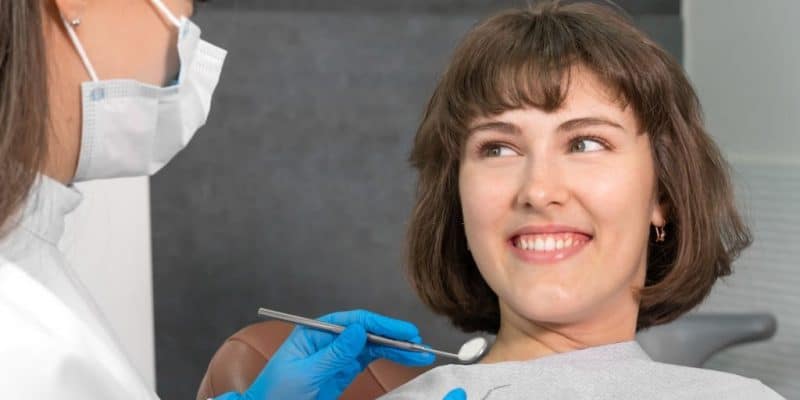Your dental health is an important element of your overall health, and it extends beyond having a beautiful smile.
Your gums’ health is equally crucial, and when problems emerge, it’s critical to seek the advice of a periodontist specialist.
But what exactly is a periodontist, and when should you see one?
This comprehensive guide will cover everything you need to know about periodontists, their role in dental health, and when to make an appointment.
Understanding Periodontists
Periodontists are dentists who specialize in preventing, diagnosing, and treating periodontal (gum) diseases. These gum specialists acquire additional training beyond a conventional dentist, making them experts in all aspects of gum health.
Periodontists are vital for maintaining good dental health since gum disorders can lead to significant difficulties if left untreated. These experts excel in diagnosing and treating various gum-related disorders due to their substantial education and training.
Services Provided by Periodontists
Specialists in Periodontics provide a wide range of services to preserve and improve gum health. Among these services are:
-
Treatment Of Gum Disease
If left untreated, gum disorders such as gingivitis and periodontitis can cause major oral health issues such as tooth loss. Loves Park dentists diagnose and treat these disorders, frequently restoring gum health through non-surgical and surgical approaches.
-
Implants For The Teeth
Periodontists can undertake dental implant operations if you have lost a tooth due to injury, disease, or other causes. Dental implants are a great long-term solution for replacing missing teeth and restoring function and appearance.
-
Grafting Of Gums
Receding gums can expose dental roots, causing irritation and a less-than-appealing appearance. Periodontist gum specialists can perform gum grafting operations to restore the look of the gumline and preserve tooth roots from further damage.
-
Gum Surgery For Cosmetic Purposes
Gum doctors can conduct cosmetic gum surgery on patients who want to improve the appearance of their smile. This includes crown lengthening and gumline reshaping to create a more balanced and appealing smile.
-
Dental Implant Maintenance
After receiving dental implants, it is critical to carefully manage them to ensure their longevity. Periodontists can give continuous dental implant care and maintenance, such as frequent check-ups and cleanings.
-
Gum Recession Treatment
Gum recession can be caused by various circumstances, including tooth brushing too aggressively, heredity, and periodontal disease. Periodontists can provide treatment alternatives, such as the pinhole surgical procedure, to address this condition and avoid additional recession.
When Should You See a Periodontist?
Knowing when to make an appointment with a periodontist is critical for optimal oral health. Here are some symptoms and conditions that indicate you should see a periodontist:
- Bleeding and swelling of the gums: Observing bleeding or swelling of your gums, particularly while brushing or flossing, could indicate gum disease. Ignoring these symptoms can lead to more serious problems, so it’s critical to seek expert evaluation and treatment as soon as possible.
- Chronic bad breath: Chronic poor breath, or halitosis, might indicate underlying gum disease. A periodontist can diagnose the source of your bad breath and provide suitable treatment.
- Missing or shifting teeth: Teeth that are loose or shifting may indicate advanced gum disease or other oral health issues. A periodontist can assess the health of your gums and teeth and propose treatments to avoid tooth loss.
- Receding gums: Receding gums not only make your mouth seem bad but can also cause tooth sensitivity and root exposure. Periodontists can perform gum grafting operations to remedy this issue and safeguard teeth.
- Dental implant requirements: If you are missing one or more teeth and are considering dental implants as a remedy, you must first contact a periodontist. They can evaluate your oral health and determine whether you are a good candidate for dental implants.
Initial Stages Of A Periodontist Visit
When you make an appointment with a periodontist, you can expect a comprehensive examination of your gum health. Here’s what you can expect during your visit:
-
Examine Your Medical History
The periodontist will start by going over your medical and dental history. They may inquire about any existing health concerns, medications you are using, and your family’s history of gum disease.
-
Diagnosis and Plan of Treatment
The periodontist will make a diagnosis and prescribe a specific treatment strategy based on the examination findings. Depending on your unique needs, this package may include one or more of the previously stated services.
-
Questions and Answers
The periodontist will spend time with you discussing their findings and treatment recommendations. They will answer questions or concerns and ensure you comprehend the suggested treatment. You might also ask them questions about dental insurance to ensure it’s affordable and convenient.
-
Treatment Methods
If treatment is required, the periodontist will make an appointment to execute the essential medicines. They will explain what to expect before, during, and after each treatment and any potential discomfort and recovery time.
Conclusion
Your gum health is important to your general health, and visiting a periodontist is critical for keeping healthy gums and teeth. Whether you have gum problems or want to improve the appearance of your smile, a periodontist can provide the required care and treatment.

